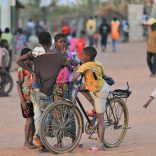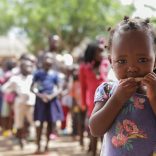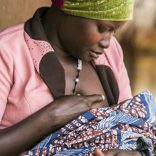Mozambique: Pedro, seeking the family of the boy he fled with
Human organ trafficking a reality in Mozambique, says Cemirde

Voa Portugues / Esmeralda Mariano presenting the study on trafficking of parts of the human body and organs in the southern region of Mozambique.
According to a study commissioned by the Episcopal Commission for Migrants, Refugees and Displaced Persons (Cemirde) and released on Thursday in Maputo, well-organised human organ trafficking networks are operating in Mozambique, and traditional doctors are singled out as the main customers.
Esmeralda Mariano, researcher and professor of anthropology at Eduardo Mondlane University, presented the study, which took six months to be produced and heard evidence from 116 key players and informants from the three southern provinces of Mozambique.
Complex trafficking networks range from the individuals who order the organs to those who obtain them, with large amounts of money being made along the way. Traditional healers are the main users of the organs, but the ultimate beneficiary is rarely known, says Mariano.
Another member of the team, Carla Braga, also a professor of anthropology at the Eduardo Mondlane University, admitted that the media were in fact the main source of information on the phenomenon.
Cemirde announced that it would launch a major campaign to prevent and combat trafficking in body parts in Mozambique shortly.












Leave a Reply
Be the First to Comment!
You must be logged in to post a comment.
You must be logged in to post a comment.